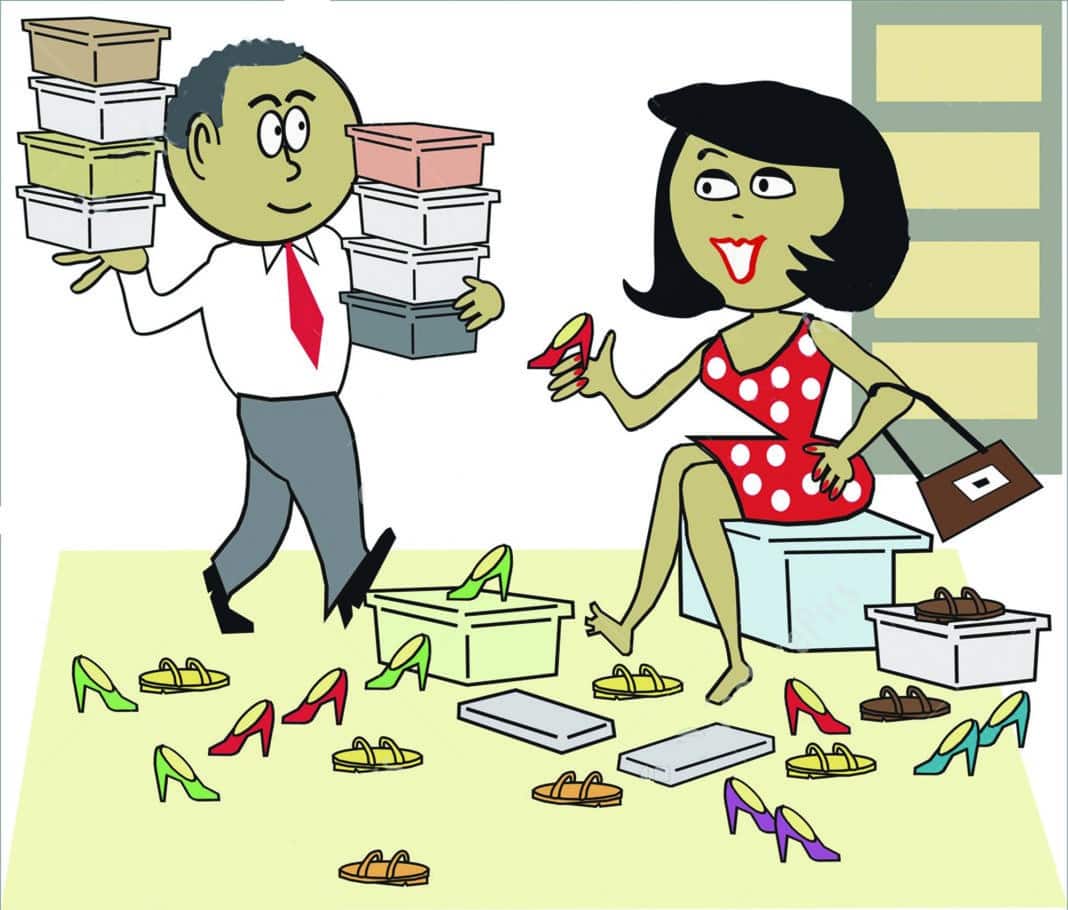My declared interest in this week’s topic is that I have very little interest in it: I am not much of a shopper. When I have to, and when I need something specific, I find out where it can be had and then I make a simple single purchase as quickly and effortlessly as is humanly possible. This simple way of life has become yet another Covid casualty.
Like so many other things around us, the methods of shopping have changed drastically in recent times. There has been an explosion in the growth of online shopping. I admit to having purchased the odd item in this manner, but I have to say that, everything else being equal, I am far more inclined to deal with the man who owns a counter.
You cannot try on a couple of pairs of shoes online, nor have the assistant tell you that something looks good on you. We had always been led to believe that it is how a business person connects with customers. This used to be the first requirement of success. How then can faceless online shopping be better than shaking hands over a good deal being struck?
Whatever the reasons, it certainly seems as if the trend towards online shopping is becoming more and more popular, so is this a good or bad development?
Convenience has to be the main attraction of buying goods online from the comfort of your own home. Most folks don’t fancy spending endless hours traipsing around shops (well, apart from Mrs You-know-who!). This is the reason that online shopping has caught on to such an extent. You can source stores, change products and view goods with the click of a button. Mind you, I suspect that the sellers sometimes make the product appear more beautiful on your screen with the benefit of image editing. Even grocery shopping is very much a part of online business these days.
Most online sellers promise a return policy, but according to some commentators, it isn’t as easy to get your money back with the push of a button as it was to order the article in the first place. You also need to consider what the after sales service will be like – if any.
If you do decide to purchase goods online, it might be a good idea to try and secure a C.O.D deal, rather than leaving your credit card details out there – with the risks of fraud and scams. At the very least, ensure that you have a name and a phone number you can contact.
This column has previously reflected upon the sadness of seeing old traditional shops closed and boarded up in recent years. There is no doubt but that the online market has contributed to the heart being pulled out of the centre of towns and villages across the land. Next time you are in town, take a look at all the high street shops with ‘To Let’ signs in the windows. Offline shops have higher overheads and the online outlets exploit this by undercutting the traditional shops and promoting ‘loss leaders’. Think about this side-effect of buying online.
Shopping was always a sociable human activity. There was a time when people took time to go to town to shop. They met friends and neighbours and exchanged pleasantries, as well as local tit-bits of news. For some people this was their only weekly outing, apart from attending church. Online shopping deprives people of this pleasure of getting out and mixing with the people they know.
No online market can offer atmosphere or individualism. You cannot experience a street market or a ‘Moore Street’. The meat may look good on your screen trolley – but it won’t be the same as that bought from butchers like Lenihans or Seamus Bracken. In addition, it is nice to be appreciated and to be told, ‘thank you for your custom’. To ‘Mr Online’ you are just a number and he doesn’t care how your children are.
Because it is there, we are all likely to buy something online going into the future, but let us not forget the importance of real shopping. It is much more than just buying something: Conversation and communication is included at no extra cost and it is a social connection in a community. It should never be allowed to die.
Don’t Forget
The most important factor is individual recognition – more important that salaries, bonuses or promotions. Most people, whether they are engineers, business managers, or machine operators, want to be creative.
They want to identify with the success of their profession and their organisation. They want to contribute to giving society more comfort, better health, more excitement. And their greatest award is receiving acknowledgement that they did contribute to making something meaningful happen. (Paul Cook – Positive Leadership)







